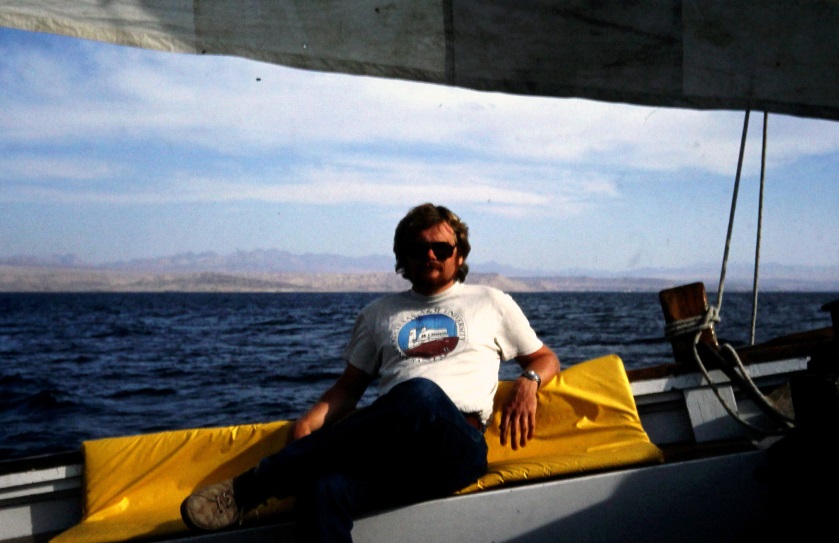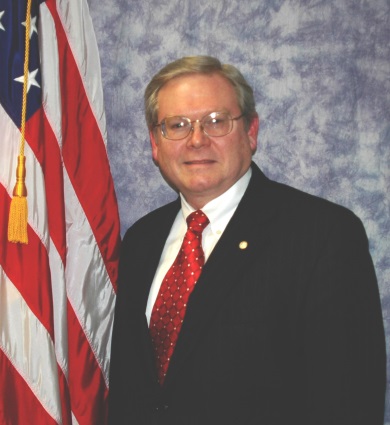Jim Kendall followed his passion from Ohio to the OCS

aboard a research sailing vessel in 1985 off the
coast of the Sinai Peninsula, Egypt
In 1985, Dr. James (Jim) Kendall had just finished his Ph.D. in oceanography at Texas A&M University when he found himself aboard a sailing vessel off Egypt’s Sinai Peninsula. At that time, Kendall, today BOEM’s Alaska Regional Director, had been awarded a post-doctoral fellowship in marine biology from the Hebrew University of Jerusalem. Working out of a marine laboratory in Eilat, Kendall focused his research on documenting coral growth rates and the behavior of Lion Fish, now an invasive species in some U.S. waters.
"It was a very exciting time in my life, living at the intersection of four Middle Eastern counties -- Israel, Jordan, Egypt, and Saudi Arabia -- all visible from our lab,” said Kendall. “Among other things, I helped a colleague collect lobsters for neurological studies. There are very few lobsters on the reefs of Eilat, but many off the coast of the Egyptian Sinai. Working with our Egyptian colleagues, we got permission to sail down their coast to collect the necessary specimens. Since lobsters are very reclusive during the day, only venturing out at night, there we were -- on an Israeli-flagged research vessel off the coast of Egypt, scuba diving at night to collect lobsters. This is not a movie. I actually got to do this.”
Growing up in northeastern Ohio, Kendall said he never had the opportunity to the see the ocean until he was on his way to Old Dominion University (ODU) for his freshman year of undergraduate school. However, having watched every single episode of The Undersea World of Jacques Cousteau and learning to scuba dive in a quarry, Kendall was committed to becoming a marine biologist.
“I have had a great career which has taken me all over the world, for both work and pleasure,” he said. “Looking back -- while still looking forward -- one of the most important factors in my journey has been having good mentors; particularly, those who would say things I didn't want to hear.”

As an example, Kendall’s undergraduate adviser told him at their first meeting, "If you're really serious about this, don't take any marine biology or oceanography courses as an undergraduate. You need to build a foundation in biology before you specialize." Kendall reluctantly followed the advice to the letter, moving on later to graduate school at Texas A&M University (TAMU) where he said he never had to go back and "fill any gaps." At TAMU, Kendall thought his Ph.D. topic would be basic research involving plankton or fisheries. But his major professor presented him with something in the applied sciences, studying the effects of drilling fluids on coral growth in a research project for the EPA.
“This was something not considered very glamorous in academia at the time,” Kendall said. “I took on the challenge and never looked back.”
Kendall used these skills and the advice of other great mentors and avoided focusing exclusively on academia to seek a fulfilling career in marine science. He began to also consider the roles that industry, state and federal governments and environmental organizations play in protecting the marine environment while managing energy resources safely and responsibly.
He moved overseas for a temporary position with the Hebrew University of Jerusalem, then back to the United States. He spent some time working for the State of Texas and then in the private sector. In more recent years, Kendall has worked in two BOEM Outer Continental Shelf (OCS) regions as well as in headquarters.
“Opportunities for a fulfilling career, continued learning, and making a real contribution abound,” is Kendall’s advice to aspiring scientists. “Be open to them. Be ready to take on a new challenge; and, first and foremost, be ready to challenge your own paradigms.”

